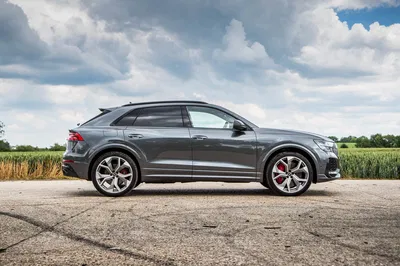Bentley Continental GT V8 Review: Forget The W12, You Want This One

Pros
Cons
VW Group’s W12 is such a weird thing. The only production engine of its kind, it essentially mates together two VR6 engines to form what looks like a traditional two-banked V engine, but with the narrow-angle, staggered V-layout of the pistons in each bank forming a W shape. The Bugatti Veyron runs with the same concept, albeit with four extra pistons.
One of the many bonkers engineering ideas to come from the Piech era at the Group, the engine has since been abandoned by the auto giant’s main brands. Production shifted to the Bentley factory in Crewe years ago, and with the Audi A8 finally ditching the 6.0-litre monster not so long ago, it’s only the products of the British brand that use it.

For a luxury brand, it’s perfect. The W12 is effortlessly powerful and torquey, smooth, and brilliantly refined. And yet, traditionally, Bentley products have always been sweeter with the big 12 dropped for a more conventional V8. And since there’s a new V8 version of the current-generation Continental GT, we’re finding out whether that’s the case again.
A prod of the downsized Conti’s super-spangly start button gets us off to a good start - there’s a lovely burble that feels more in keeping with Bentley tradition than a 12. Once the move, the news is even better - it lets out a quiet, gentlemanly noise, with a hint of old-school woofle. Sport mode brings with it extra pops and crackles, but nothing obnoxious.

This may be the same 4.0-litre twin-turbo V8 used in the likes of the Porsche Panamera, Audi RS Q8, Lamborghini Urus and much more besides (it isn’t quite as prolific as the EA888, but it seems like it’s heading in that direction), but Bentley’s trick exhaust ensures the Continental has its own distinct soundtrack. One which quite effectively evokes the company’s now deceased 6.75-litre V8.
The 542bhp, 568lb ft unit may lack the outright shock and awe of the 626bhp, 664lb ft W12, but you really can’t grumble at the pace on offer. 0-62mph takes four seconds dead, which is just two tenths off the 6.0-litre. It isn’t as laggy, either, and it operates in a surprisingly linear way.

Part of the reason it’s not a whole lot slower is weight - dropping a couple of litres of engine saves around 70kg. And, of course, all of that used to live at the front end. With a smaller, lighter engine mounted nice and far back in the Continental’s engine bay, it suddenly becomes a whole lot keener to change direction.
Getting rid of what was essentially a massive anchor dragging down the front end makes a huge difference to the Continental’s handling characteristics, despite Bentley having the same aims when setting up the V8’s suspension.
Although the W12 is spookily good at warding off body roll to the electronic anti-roll bars used on all versions of the car, there comes a point where all of that trickery has done all it can. Then, the nose pushes out into understeer. The V8, with its lighter nose, is more likely to lose traction at the rear when pushed hard. Goodie.

Even with the weight reduction, it is still a bulky thing, tipping the scales at well over two tonnes. But you really wouldn’t know it. And this being a Bentley, when you’re not trying to find out the handling differences between it and the W12, it’s fantastically wafty. Few have cossetting, relaxing rides quite as well as Bentley.
Crucially, the interior - perhaps the Continental’s greatest strength - is no different when you ‘downgrade’ to the V8. Same lovely details like the ‘organ stop’ vent controls, same fancy rotating display (optional on both cars, but well worth it) and the same array of incredible finishes. We’re particularly enamoured with the ‘Côtes de Genève’ dashboard cladding seen here, which is inspired by fancy watches.

Downsides? Well, the optional 22-inch wheels fitted here are best avoided - the ride is still surprisingly well dialled in with them fitted, but the road noise they give off puts a downer on the Conti’s cruising potential. Meanwhile, the steering isn’t exactly a highlight, although it’s quick enough and about the right weight.
It also isn’t cheap (well, duh), but there is a real sense of you get what you pay for with the Continental, particularly as you’re getting something which is - on most levels - a better package for less. At £151,800, the starting price is around £10,000 less. It’s more economical by a decent amount too. I don’t care how loaded you are - the fuel bills associated with a W12 are going to sting.

As 12-cylinder engines edge closer to being consigned to the history books, these mammoth units of internally-combusted units deserve to be celebrated. But bigger simply isn’t always better - sometimes, as is the case with the Bentley Continental GT, less is more. Other than for outright country club bragging rights, there’s no logical reason to go for the W12.
Plus, at some point, Bentley should hopefully make an even sharper V8 S. Considering how good a starting point this ‘standard’ V8 is, our hopes are sky-high.















Comments
#noreplacementfordisplacement
Amen